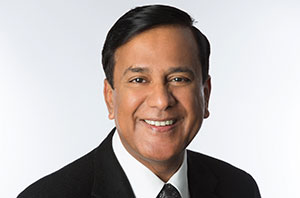World Health Partners (WHP) aims to deliver better health and reproductive health care at scale within walking distance to marginalised communities. The focus is on rural populations and urban slums of developing countries. WHP started 10 years ago by creating a network of rural entrepreneurs. The initial approach was to create cost effective and large-scale markets by using latest advances in communication, diagnostic, and medical technologies to add value to existing social, physical and economic resources. It created 12,000 rural centers covering 25 million people in Uttar Pradesh and Bihar in India and Homa Bay in Kenya. The network has so far treated over 26 million patients, mostly women and children.
WHP is currently pivoting to integrate solutions into the public sector and has started producing results, emerging as an vital provider of TB detection and treatment with government support in India. WHP also works to purpose digital solutions for other sectors such as education and agriculture and anchor healthcare in them.
Ensure that rural poor communities have sustained access to affordable, quality services in areas of health, reproductive health, education, and upskilling which improves their quality of life. Create common assets to deploy across sectors and use marketing and management principles to generate revenues to meet recurring costs so the projects are sustainable.
Harness the already available resources in poor communities, however meager, and enhance their value with use of management systems and technologies to achieve scale quickly within the existing empathetic financial and social framework. Price services at break-even and lock into government budgets to support the very poor.

Founder & President, World Health Partners
Growing up in rural Tamil Nadu in southern India, Gopi Gopalakrishnan recognized and appreciated the social and cultural dynamics of rural population first hand. While working at DKT International, a private provider of reproductive and family planning products, Gopi saw that poor rural women with the highest health and reproductive health needs required the service and follow-up care close to their doorstep but the formally trained providers in the private sector were mostly urban-based. Informal healthcare providers in the village were the mainstay of healthcare delivery for these communities who while lacking in medical competencies build their business on the basis of strong relationships with the community. On the other hand, the public sector in these areas deployed a limited team of formally qualified providers who possessed the requisite medical skills but functioned inefficiently and often were unempathetic with the community's needs. Gopi's question was: can we combine the complementary competencies available between the informal providers and the public sector to deliver better quality care at scale and enhance the impact with new opportunities such as m-health? With this long-term plan in mind, Gopi founded World Health Partners in 2008 to expand and build on the work of Janani, (a nonprofit he also founded, which at its peak delivered more than 20 percent of the family planning services in the large and poor Indian state of Bihar).
WHP’s primary health project and the special project during the pandemic had a large footprint and covered an area home to 210 million. With social franchising strategies, WHP networked 16,000 frontline rural entrepreneurs who served as locally accessible and life-saving oxygen centers for their communities. A digital telemedicine system provided direct interface between doctors and patients during the lockdown in which 600 government doctors and 1,600 assistants provided over 300,000 consultations.
In its 12 years of existence, WHP has treated over 29 million patients with the predominant focus on childhood pneumonia and diarrhea, the two top-most killers. A large-scale TB project operates with government support (so far valued at $16.7 million) and works through a digitally integrated network of 7,550 formally and informally qualified doctors, 17,280 pharmacies, and over 250 laboratories, and has identified and treated 290,900 patients in the last three years.
To effectively deal with emerging psychosocial and gender violence issues in a post-COVID situation, WHP is implementing a mental health project in which over 522,000 persons in 1,69,500 households were counseled until September 2022. We also facilitated government assistance to the poorest communities under various social schemes in which payments worth $56,000 were directly transferred to their bank accounts this past year.


